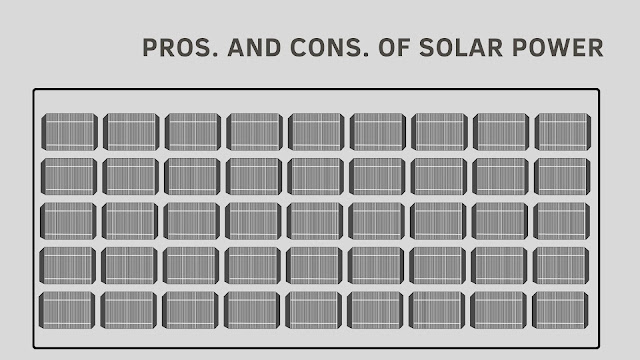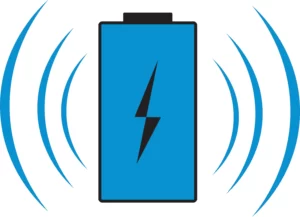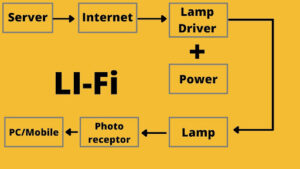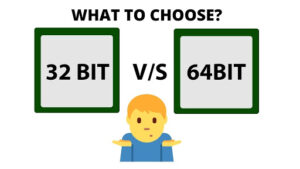Pros and Cons of solar energy
Currently,
due to the use of large quantities of coal and mineral oil, it is slowly
ending. We also know that there
is a lot of pollution when using or refining them. But we have to remember
that, from this coal and mineral oil we get our daily and very much-needed
electricity. Also, almost all cars are powered by petrol or diesel, which is
available through refining mineral oil. However, electric cars are also present
in the market which will take a very important role in the next generation. But
to charge the battery of these electric cars we need electricity which comes
from burning coal or mineral oil. So we need to look at another way to get
this power. And the most popular among them is solar power. To get this solar
power, we need solar cells or photo-electric cells. When the photons of the
sun’s light come into the solar cell, the electrons come out of that solar cell
and that’s how we get solar electricity.
due to the use of large quantities of coal and mineral oil, it is slowly
ending. We also know that there
is a lot of pollution when using or refining them. But we have to remember
that, from this coal and mineral oil we get our daily and very much-needed
electricity. Also, almost all cars are powered by petrol or diesel, which is
available through refining mineral oil. However, electric cars are also present
in the market which will take a very important role in the next generation. But
to charge the battery of these electric cars we need electricity which comes
from burning coal or mineral oil. So we need to look at another way to get
this power. And the most popular among them is solar power. To get this solar
power, we need solar cells or photo-electric cells. When the photons of the
sun’s light come into the solar cell, the electrons come out of that solar cell
and that’s how we get solar electricity.
Benefits of Solar Power: –
1) It is free of pollution: – When generating thermal power or nuclear power, some pollution must occur.
And this pollution must harm the environment in some way. But solar panels. On the other hand, are completely pollution-free.
And this pollution must harm the environment in some way. But solar panels. On the other hand, are completely pollution-free.
2) Maintenance Cost: – Solar power-generating solar panels have very low maintenance costs.
Cleaning them 1 to 2 times a year will continue to work for a long time.
However, we have to keep in mind that there is no accident when cleaning.
Because if we clean them during the day, then the solar panel will generate
electricity all the time and if we accidentally touch the conductive wire, then
the chances of accidents will increase.
Cleaning them 1 to 2 times a year will continue to work for a long time.
However, we have to keep in mind that there is no accident when cleaning.
Because if we clean them during the day, then the solar panel will generate
electricity all the time and if we accidentally touch the conductive wire, then
the chances of accidents will increase.
3) Not to be dependent on other energy: – After the invention of solar power generation, our dependence on other
conventional energy has decreased greatly. Which is slowly improving the
environment and ecosystem.
conventional energy has decreased greatly. Which is slowly improving the
environment and ecosystem.
4) It is much safer than any other energy source: – Solar electricity is much safer than conventional thermal power. Because
the primary voltage here is very low. Which we can increase to our needs later.
But the current voltage is much higher in conventional electric power. That’s
why there is a high chance of an accident.
the primary voltage here is very low. Which we can increase to our needs later.
But the current voltage is much higher in conventional electric power. That’s
why there is a high chance of an accident.
5) Meeting the demand for electricity in remote
areas: – Solar electricity can be used in all places like
urban or remote rural areas. There are many places where people live very well
but it is very difficult to get conventional thermal power there. In that case,
the use of solar power is very economical and cost-effective.
areas: – Solar electricity can be used in all places like
urban or remote rural areas. There are many places where people live very well
but it is very difficult to get conventional thermal power there. In that case,
the use of solar power is very economical and cost-effective.
6) Reduce electricity bills: – If you install solar panels that produce solar electricity in your home,
then your electricity bill will naturally come down as all your home needs will
be met by solar electricity.
then your electricity bill will naturally come down as all your home needs will
be met by solar electricity.
Also,
various other uses of solar power are solar pumps, solar water heaters, solar
street lights, solar traffic lights, and solar panels, which are always used as a
source of artificial satellite electricity in space.
various other uses of solar power are solar pumps, solar water heaters, solar
street lights, solar traffic lights, and solar panels, which are always used as a
source of artificial satellite electricity in space.
The disadvantages of solar power: –
1) Primary Cost: – The
initial cost of using solar power is a bit higher because solar power
generation is only needed during the day as long as the sun is there. In this
case, we need a battery to store the solar power and also need an inverter to convert
the power we need. The initial costs of these batteries, solar panels and
inverters are a little bit higher.
initial cost of using solar power is a bit higher because solar power
generation is only needed during the day as long as the sun is there. In this
case, we need a battery to store the solar power and also need an inverter to convert
the power we need. The initial costs of these batteries, solar panels and
inverters are a little bit higher.
2) Need more space: – If you want to produce more solar power, you need to install more solar
panels. More space is needed to install more solar panels. But there is no
such problem with conventional thermal power.
panels. More space is needed to install more solar panels. But there is no
such problem with conventional thermal power.
3) Seasonal change: – When the change of season means that in the winter or rainy season when
the sun is reduced in the sky, the amount of electricity from the solar panel
is reduced. In this case, we do not get much-needed electricity.
the sun is reduced in the sky, the amount of electricity from the solar panel
is reduced. In this case, we do not get much-needed electricity.
After all, it
can be said that solar power is a bit weaker than other conventional energy,
but it does not harm the environment and protects the environment from
pollution. We need to do more research on solar energy so that it can be
improved.
can be said that solar power is a bit weaker than other conventional energy,
but it does not harm the environment and protects the environment from
pollution. We need to do more research on solar energy so that it can be
improved.





